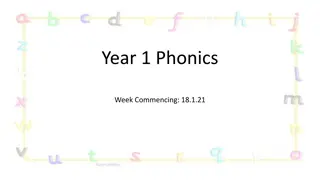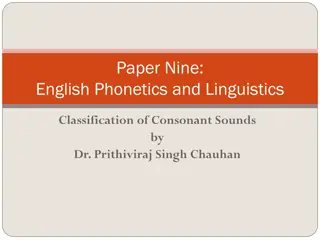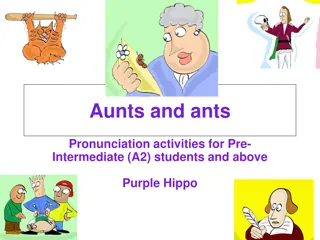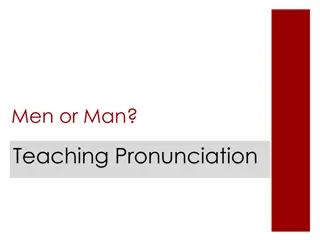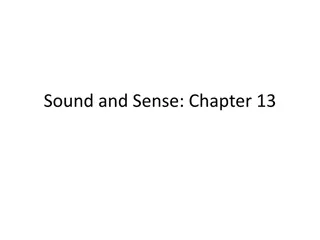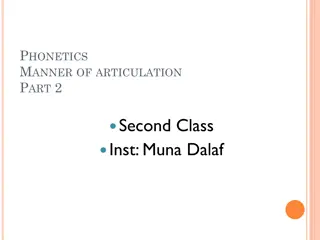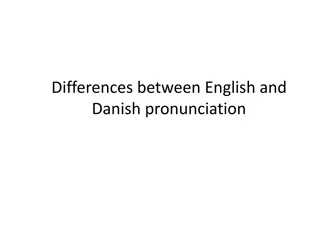Overview of Fricative Sounds in English Pronunciation
This content discusses various fricative sounds in English pronunciation, focusing on the articulation of sounds like /s/ and /z/. It covers the positioning of the soft palate, tongue, teeth, and lips while producing these sounds, providing examples like "thin," "think," "free," and more. The content also explains the distinction between strong and weak fricative sounds and the role of different mouth structures in sound production. Additionally, it touches on the phonetics of /h/ sound before vowels and emphasizes the importance of proper articulation for clear pronunciation.
Download Presentation

Please find below an Image/Link to download the presentation.
The content on the website is provided AS IS for your information and personal use only. It may not be sold, licensed, or shared on other websites without obtaining consent from the author.If you encounter any issues during the download, it is possible that the publisher has removed the file from their server.
You are allowed to download the files provided on this website for personal or commercial use, subject to the condition that they are used lawfully. All files are the property of their respective owners.
The content on the website is provided AS IS for your information and personal use only. It may not be sold, licensed, or shared on other websites without obtaining consent from the author.
E N D
Presentation Transcript
/ / and / / / / and / / are also fricative sounds, / / is strong and / / is weak. 1. The soft palate is raised so that all the breath is forced to go through the mouth. 2. The tip of the tongue is close to the upper front teeth.
EXAMPLES thin / n / then / n / think / k / this / s / thief / i f/ these / i z / thank / k / that / t / thought / t/ those / z /
The second group p. 29 fin / f n / free / fri / first / f st / they / e / three / ri / thirst / st / vat / v t / vain / ve n / veal / vi l /
/ S / AND / Z / / s / is a strong friction sounds and / z / is a weak one. Notice 1. The soft palate is raised so that all the breath is forced to go through the mouth 2. The tip and blade of the tongue are very close to the alveolar ridge. There is a very considerable narrowing at this point, not near the teeth and not near the hard palate. 3. The teeth are very close together.
/ / , / / / / is a strong friction sound and / / is a weak one Notice 1. The soft palate is raised so that all the breath is forced to go through the mouth 2. There is a narrowing between the tip of the tongue and the back of the alveolar ridge. 3. The lips are very slightly rounded. / / does not occur at the beginning of English words but / / quite frequently does.
finish / fn / wash / w / garage / g r / beige / be / rouge / ru /
/ h / sound / h / always occurs before a vowel heart / h t / heat / hi t / who / hu / hair / he /
Stay at Home




